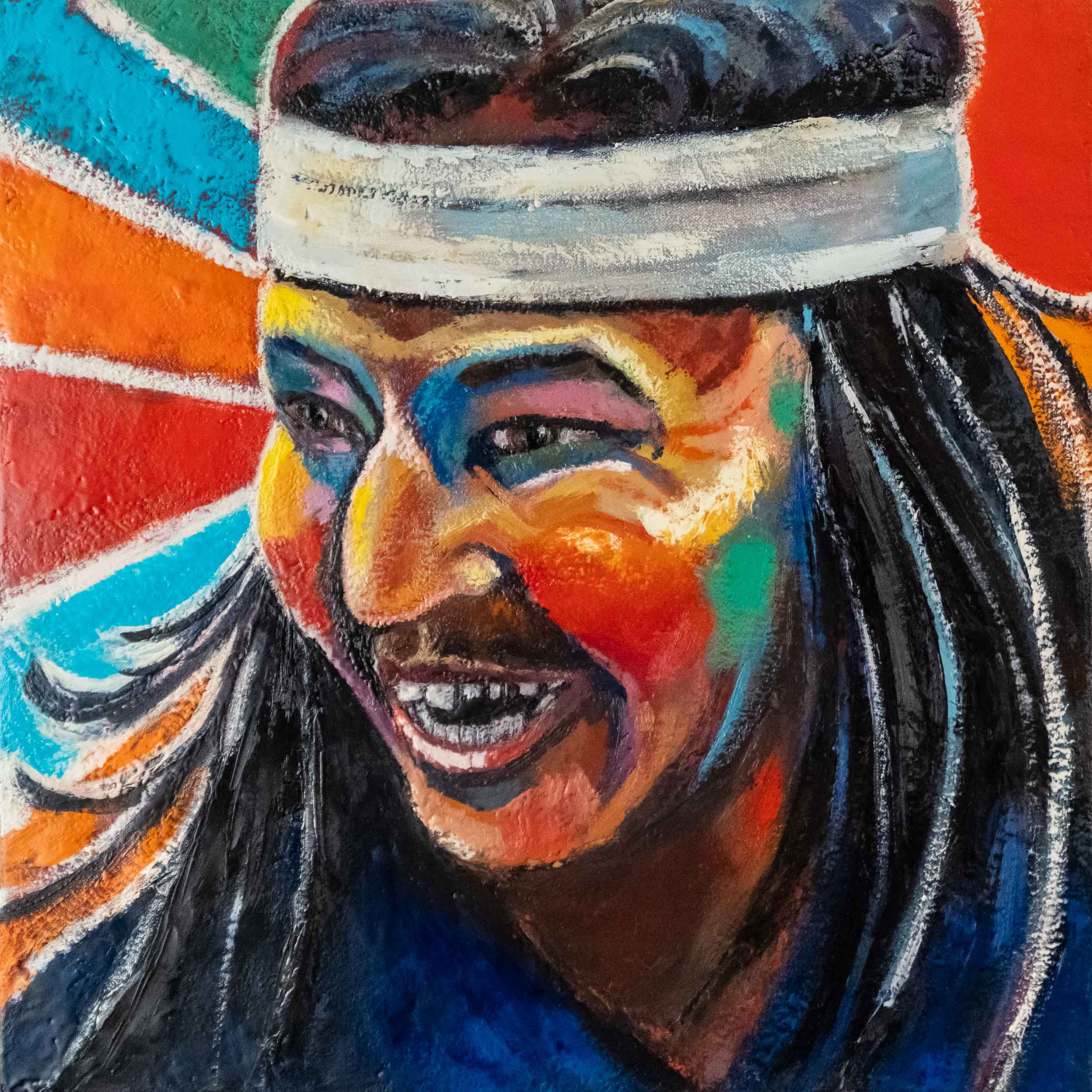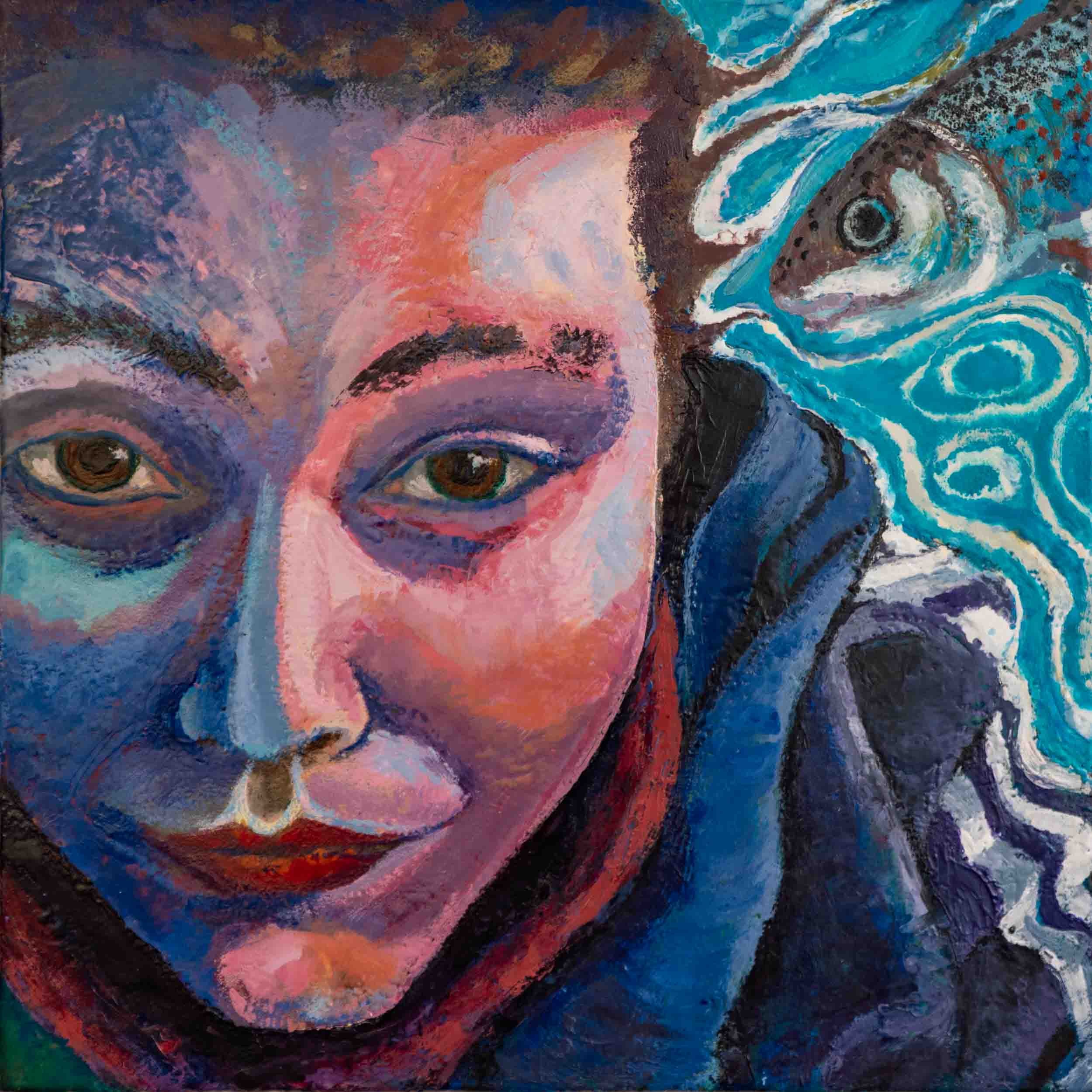Facing Lucretia


about the project
Facing Lucretia is a social justice project featuring a series of portrait faces of Indigenous people, painted by Indigenous and non-Indigenous artists; accompanied by spoken, audio, written and/or video documentaries. Supporting reconciliation and healing, Facing Lucretia responds to one of the TRC’s Calls for Action, namely: for Indigenous and non-Indigenous artists to undertake collaborative projects and produce works that contribute to the reconciliation process.
The intention of this project is to create both an online virtual reality exhibition and an eventual touring physical exhibition for national and international museums, galleries, human rights conferences and other venues interested in the injustices still facing Indigenous Peoples in Canada. The exhibitions envisioned for this work will serve to educate and inspire viewers of all ages and cultures and to support the truth-telling by Indigenous people about their own experiences. Following the exhibition tour, the portraits will be given as gifts to Indigenous survivors; donated to a memorial centre/museum/gallery; and/or sold with all proceeds going to support the project and/or Indigenous survivors.
Conceived by Canadian artist, Amanta Scott, curated by Dr. Karine Duhamel, and inspired by the story of The Rape of Lucretia, Facing Lucretia is rooted in honouring survivors of systemic racism, violence, rape, Indian Residential School, the Sixties Scoop, or other state interventions, as well as those who never made it home. Facing Lucretia aims to develop an archive of portraits that uphold the humanity, strength, beauty, resilience, humour, sorrow, rage and differing characters of all Indigenous Peoples; and to generate an active counter-narrative to injurious misconceptions and stereotypes.
the inspiration . . .
Facing Lucretia is inspired by the story of the rape of Lucretia, a major theme in European Art. Lucretia was an ancient Roman noblewoman who was blackmailed and raped by a guest to her home - the king’s son, Sextus Tarquinius (Tarquin). The next morning, Lucretia tells her story to her father, the chief magistrate of Rome, and to her husband. Despairing of the time the men are debating what to do, Lucretia cries out for vengeance, stabs herself in the heart and dies. Her rape and subsequent suicide so enraged the public that this triggered a revolution which precipitated the fall of the Roman monarchy and led to the formation of the Republic of Rome. For more, click here.
How is Lucretia’s story Relevant?
For Artist Amanta Scott, the story of Lucretia directly parallels the historical and contemporary situation of Indigenous Peoples living on the lands now known as Canada since time immemorial. While Indigenous people graciously welcomed newcomers to their lands, the newcomers, like Tarquin, poisoned this relationship and betrayed this trust. Indigenous people, families, communities and lands were assaulted through theft, violence and systemic and structural racism; and blamed for the very problems that colonization created. Today, the impacts of historic and ongoing colonization are evident in the way that Indigenous people are targeted for violence, experience poorer outcomes in social determinants of health, and experience racism and discrimination which has taken, and continues to take, lives. Despite reports from the TRC and the MMIWG Inquiry— people still await government action and a formal apology; deal with poor health and third world living conditions; and despair and suicides are rampant.
Call for action
Now Canada finds itself at a moment of historical and contemporary reckoning; facing an opportunity for positive change – lest we repeat the fate of Rome herself. Facing Lucretia intends to capture this moment, through portraits of Indigenous peoples’ strength, power and resilience. The portraits encourage Canadian and international viewers to face Indigenous people themselves; face the reality and horror of what has been done in the name of colonialism; and invite each of us face our own responsibility for our words and our actions.
“We must look in their eyes and face the horrors and the irrefutable indomitable strength and beauty of the people. Their history demands honour, vengeance, justice - and change.”
Information for Participating Artists
Indigenous and non-Indigenous Artists and Elders are invited to submit Expressions of Interest to participate in Facing Lucretia.
Up to twenty-five Artists will be selected for the project in the first year. Artists may choose to create a painting as a stand alone, or else to accompany their work with audio or written testimony articulating the stories that individuals have chosen to share. Artists will be asked to secure oral or written consent from those they wish to paint prior to submitting the painting for the project. Artist fees will be based upon the current market value of the artist’s other works.
Questions?
For questions on the project’s background, or any other questions, please contact artist Amanta Scott or curator Karine Duhamel.
About Amanta Scott
Amanta Scott is an Ontario-based Canadian multidisciplinary artist. Through encaustic paintings, interactive sculpture installations, audio/video, music, dance, voice, workshops and dialogue with diverse communities, she explores the relevance of ancient archetypes, myths and symbols to urgent critical matters of our time. Her work is informed by powerful stories, ancient and contemporary. Inviting visitors to interact with her works and to share their experiences, Amanta strives to create meaningful opportunities for people of all ages and cultural backgrounds to show, be seen, heard, listen to others, find healing, and address important social issues through the arts.
Amanta’s previous work includes Eyeing Medusa, a series of encaustic paintings that challenges the Western art’s reliance on images of violated, hyper-sexualized, subservient, or otherwise absent women. By focusing entirely on their faces, the work encourages viewers to see women in a new light and recognize what remarkable people they are. Earlier work also includes Parallel Lines, a project designed to provoke, disturb, question, and embrace the undetermined and the indefinite. A visual installation featuring reclaimed prison beds from the former Kingston Women’s Penitentiary, a pathway of eggshells, original photography and encaustic painting, the exhibition empowers people to voice intense, personal and political issues; deepen understanding; forge connections; and engage meaningfully with the arts.
The form of Facing Lucretia — a series of face portraits — is rooted in the impact of Amanta's project Eyeing Medusa which was triggered by Tintoretto’s painting Tarquin and Lucretia. And, it was when she was speaking with her friend and artist, Paul Shilling, explaining her reasoning for linking ancient archetypes/historical heroines with contemporary women for Eyeing Medusa, that the full implications of the story of Lucretia hit her. Amanta became friends with Paul and his brother, Arthur Shilling in the early 80s and was profoundly moved by Arthur Shilling’s vibrant expressionist style and his vision for painting the beauty of his people. From that meeting onwards Amanta has been involved with Indigenous communities, puzzling always how to bridge the divide between peoples, generate compassion and cultivate unity in diversity. Facing Lucretia may be a solution.
About Dr. Karine Duhamel
Facing Lucretia will be curated by Dr. Karine Duhamel (Anishinaabe-Metis), who has curated several projects related to Indigenous Peoples for national and international audiences. Duhamel is a former Curator of exhibitions dealing with Indigenous sovereignty, traditional knowledge and colonization. She holds a PhD in history from the University of Manitoba and is a speaker for the Treaty Relations Commission of Manitoba. She was also Director of Research for the historic National Inquiry into Missing and Murdered Indigenous Women and Girls, managing the Inquiry’s Legacy Archive, a collection of over 800 artistic expression by MMIWG2S+ family members and survivors or violence.
Land Acknowledgement
Amanta wishes to acknowledge that she works and lives in Tkaronto. Tkaronto now known as Toronto, is under Treaty #13 and is home to many Indigenous Nations from across Turtle Island, including the Inuit and the Metis. It is the traditional territories of the Huron-Wendat, the Anishnabek, the Chippewa, the Haudenosaunee Confederacy and most recently, the Mississaugas of the Credit River First Nations.
Karine wishes to acknowledge that she works and lives in Winnipeg, Manitoba on ancestral lands, Treaty 1 territory, traditional territory of the Anishinaabeg, Cree, Oji-Cree, Dakota, and Dene Peoples, and on the homeland of the Métis Nation.